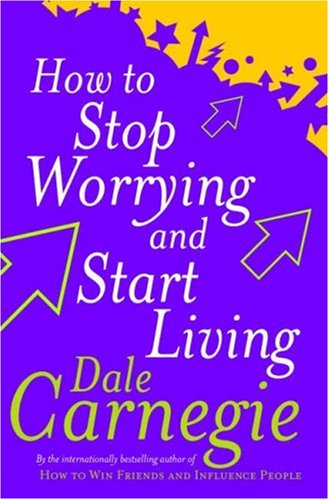“Today is our most precious possession. It is our only sure possession.”
– Dale Carnegie, How to Stop Worrying and Start Living
Recently I stopped at a used bookstore in search of old Robert E. Howard paperbacks. While scanning the shelves, a different book caught my attention. That book was How to Stop Worrying and Start Living, by Dale Carnegie. Until then I had never had much interest in reading any of Carnegie’s work, I had always thought that his books would be too outdated and diluted. I was wrong.
Aside from the archaic wording and some benign racism (which wasn’t considered offensive at the time of publication), How to Stop Worrying and Start Living feels like something Tim Ferriss or Anthony Robbins could have written. I was shocked by this book’s relevance.
Carnegie divides the book into ten easy-to-read sections. Each of the first nine sections offers a different method to cope with or prevent stress, while the final segment is comprised entirely of personal examples showcasing various people overcoming worry.
One of things I liked most about this book, was the fact that it was concise. In each chapter (most of which are only ten or so pages long), Carnegie would lay a problem out and immediately offer a solution. While he does resolve the issue in a manner that keeps the reader interested, Carnegie never gets lost in his own showmanship. Far too many self-help books get so lost in the author’s overly dramatic and wandering proses, that their “advice” becomes vague at best. This never happens here. In fact, the end of each section contains a brief and to the point summery of its contents. And I mean brief and to the point, just take a look at the summary of part seven:
“Six ways to prevent fatigue and worry and keep your energy and spirits high:
Rule 1: Rest before you get tired.
Rule 2: Learn to relax at your work.
…”
This advice might seem too simplistic and like common sense, but that’s the point. Carnegie wrote his book to be practical and simple to follow. The book is meant to be used both as a preventative of worry, and as a reference for when you’re stressed out and don’t know what to do. In my opinion, an overly complex book wouldn’t be nearly as effective in doing either task.
My copy only cost me a $1.75, I’m sure you can find a used paperback for about the same price. If not, you can always hit up Amazon or visit your local library. If none of those work out, I’m sure you could always borrow one from Reddit’s book exchange.
I thoroughly enjoyed this book and plan on keeping it around me at all times, just in case I ever lose my cool while under pressure. And I recommend you do the same.
